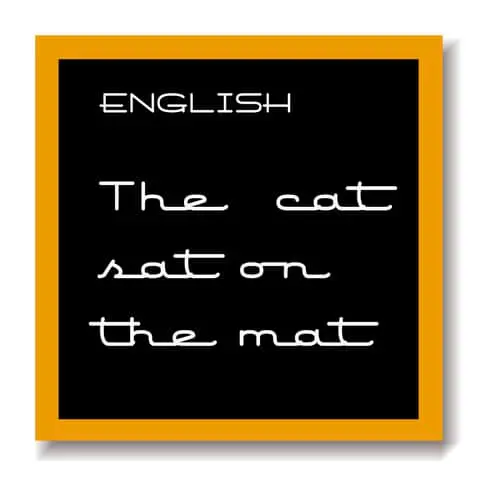
If you ever wonder what article to use in a particular situation, here’s a good way to remember How to Use Articles in the English language.
First of all, a quick lesson in history. The English indefinite article A is a modern version of the word ONE. That’s it – A simply means one. And if you know a little Spanish, then you know that the indefinite article in Spanish is either Una or Un, which literally mean One in that language. The same in German – the indefinite article is Eine, which means One.
So, what does this tell us? Well, let’s consider a sentence:
A woman was walking down the street.
What does this sentence really mean, considering what we’ve just learned? Here’s what it means:
One woman was walking down the street.
So, it’s obvious here that we’re talking about this woman for the first time; otherwise we wouldn’t be saying “One woman.” Just think back to your own experience of telling a story, whatever language is your native one.
When you begin telling a story and you mention someone for the first time, you say: “One man was…” Again, you say ‘One’ because you are mentioning him for the first time.
Anywhere else in the story you wouldn’t call him “One man” again. No – you would refer to him differently. So, how would you refer to that woman from the first sentence if you wanted to say something else about her – that she was beautiful, for example? Well, let’s try:
The woman was beautiful.
A little history again. The definite article THE comes from a word that is spelled very similarly. Can you guess what it is? Okay, ready or not – it’s the word THAT. That’s right – the English definite article THE means nothing but THAT!
So, in view of what we just learned, what does the sentence “The woman was beautiful” mean? It means:
THAT woman was beautiful.
So, let’s look at the two sentences again, and the picture will become even clearer:
A woman was walking down the street. The woman was beautiful.
LITERALLY MEANS:
One woman was walking down the street. That woman was beautiful.
I hope that this example helped you understand how to use the articles in English. Just think of A as One, and of The as That, and that will help you in most, though not all, cases.
And, by the way, the article An is the same as A, but you use it before a word that begins with a vowel when pronouncing it:
A book. An apple.
A man. An honest man.
Note that although the word honest begins with an h, which is a consonant, not a vowel, when you pronounce this word you don’t pronounce the h. This way, it’s as if the word starts with a vowel. So, we use the article An.
The use of English articles is more complex, but this should get you started. Best…
Questions? Go ahead and post one here.
Tutor Phil
